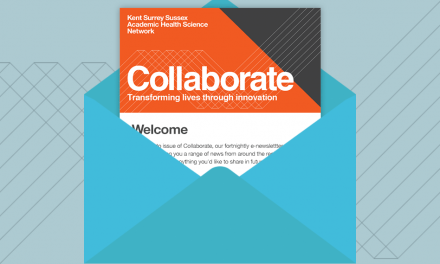In summer 2020, the NIHR Applied Research Collaboration (ARC) KSS announced a funding call focused on tackling COVID-19. A key objective was to enable research to feed into system-wide transformation and reset/recovery planning across the region.
Researchers were invited to submit proposals that met the needs being expressed by the system and which supported meaningful public engagement in the midst of the COVID-19 outbreak. A total of nine projects were selected to receive funding and over the next weeks we share the key findings.
Announcing the call for research proposals in the summer, Professor Stephen Peckham, Director ARC KSS, said:
“Over the next six months, we will listen to and speak with selected people across Kent, Surrey and Sussex. This includes those caring for people with dementia, young people and families with mental health conditions and other vulnerable communities including Black, Asian and minority ethnic (BAME) and those in high-risk groups such as the elderly people living in care homes.
“This will help us comprehend what life has been like during the lockdown and what could be done to better improve health and care services in their area.”
Community voices
The findings from the research enable the voices of several different communities to be heard more clearly. By giving voice to their experiences, challenges and needs – and with lockdown returning to England – the findings can be used to inform the system’s ongoing response to COVID-19.
Among the communities we will hear from are care leavers, carers for people living with dementia, and elderly Indian and Nepalese communities. Research also looked at the impact and experience of volunteering during the pandemic, and the experiences of seldom heard young people seeking help with mental health issues.
Joining the dots
Taken together, the findings provide valuable insight into the impact of COVID-19, and the extent to which the system’s response has been able to support some of the more vulnerable communities across Kent, Surrey and Sussex.
Des Holden, Medical Director KSS AHSN and Director of Implementation ARC KSS, commented:
“Hearing from people at the front line receiving service and care offerings, or from those whose job is to provide them, gets right to the heart of the wicked problems and the change that is needed so that people can flourish. It is only by starting with these insights and conducting research that’s directed towards these problems that the findings can hope to change practice meaningfully. We hope working in this way will create pull from the front line as well as push from senior leaders.
“Our first example, featured here, used this approach to understand the obstacles and difficulties people transitioning from looked after status face, how they set their priorities, and how they can be better supported to adapt and thrive, and avoid the desperate health, economic and legal challenges they are statistically more likely to face.”
ARC KSS research areas
The following rapid studies were approved by ARC KSS in summer 2020:
• How can services best support care leavers to move on after lockdown? Co-produced guidance produced by care leavers for care leavers and leaving care staff.
• How has COVID-19 affected the quality of life, wellbeing, and care of people diagnosed with dementia and their family carers?
• How can a community-based volunteer workforce be rapidly and safely implemented, and what is their impact on providing support for self-isolating and vulnerable members of the community during this pandemic?
• Development and implementation of a living resource to support BAME communities through the life of COVID-19.
• Rapid research into the mental health impacts of COVID-19 among children, young people (CYP) and their families in high-risk groups and hard-to-reach rural and coastal communities.
• How can community-based care settings for individuals vulnerable to COVID-19 mortality be supported in receiving returning or new clients?
• Zoom or Room: effectiveness and guidance for person vs online video interaction guidance session (for young people with an Autism Spectrum Condition).
• The ‘remote memory clinic’: responding to real clinical need in times of COVID-19 restrictions. Exploring satisfaction and impact on clinical outcomes related to dementia diagnosis.
• Scalable solutions for reprocessing of respiratory masks to protect health workers during COVID-19.
For more information
Kath Sykes, Living Well with Dementia Implementation Lead
Sam Fraser, Primary Care and Community Health Services Implementation Lead
Becky Sharp, Social Care Implementation Lead
Becca Randell, Starting Well Implementation Lead





